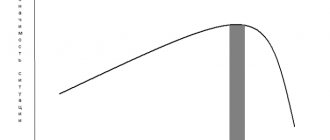Modern science and social science are actively engaged in the study of the biological and social components of man. The biological characteristics of a person, like the social ones, consist of a number of features that equally influenced his evolutionary development.
From this it proceeds that the biological and social in a person form an equal ratio, that is, a person is a biosocial individual and has a dual nature, being a symbiosis of nature and the social system.
Next, both types of human characteristics and their examples will be briefly discussed.
Man as a biological and social being
To study the issue of biological or social dominance in humans, there are two directions: panbiologism
, insisting on the biological uniqueness of each organism (set of genes, character, temperament, formation of appearance and physical characteristics) and
pansociology
, advocating biological equality and putting social development to the fore (manifested through the influence of upbringing, religion, education, formation of talents on a person, personal qualities and perception of the world).
According to philosophical teachings, man is a spiritualized physicality and, to the same extent, a body endowed with soul and mind. According to this, man is the earthly embodiment of the spirit, forced to study, work and satisfy physical needs for survival in nature and society.
At the same time, a person does not lose his individuality and character traits that make him a separate person from society. Thus, man is a unique entity that contains both the earthly and the spiritual in equal measure.
Maturity
Social maturity is the ability of a person living in society to take responsibility and make decisions.
A mature person is characterized by integrity of character, predictability, and positive behavior.
A mature person is always clearly aware of his goals and strives to achieve them, without violating the interests of other members of society. Such people evaluate themselves and the people around them extremely objectively and make decisions in accordance with the circumstances.
Achieving social maturity does not eliminate the need for other people . A mature person continues to learn new experiences, reconsider his views and work on himself throughout his life. But other people for him are advisers and interlocutors, and not teachers and mentors.
Main factors of human anthropogenesis
Anthropogenesis is the process of human development that is directly influenced by biological and social factors of development.
The biological properties of evolution affect all representatives of living nature, including humans. These include: variability of heredity, struggle for survival, mutations and genetic drift, natural selection.
Social factors include: culture, work, thinking, the formation of moral qualities, the development of social consciousness and speech.
The most important engine of evolution is labor activity
- the ability to create tools for work belongs purely to humans, while animals use auxiliary means for hunting and building housing.
If biological developmental characteristics are transmitted hereditarily, then the acquisition of social ones occurs only during education and upbringing.
E. Erikson's theory of psychosocial development
E. Erikson argued that a person develops throughout his life.
From birth to death, it goes through 8 stages, each of which is accompanied by a certain crisis :
- infancy (0-1 year);
- early childhood (1-3 years);
- childhood (3-6 years);
- school age (6-12 years);
- adolescence and youth (12-20 years);
- early maturity (20-25 years);
- middle age (25-65 years);
- late maturity (after 65 years).
Every crisis can end well or negatively .
If a person successfully overcomes it, then he moves on to the next stage of life with good prerequisites for further personal development.
If the crisis is not overcome, then the transition to the next level still occurs, but unresolved problems at the new level remain with the person.
Biological characteristics of humans
As a biological individual, a person has characteristics that make him similar to other species: the desire to procreate, differences in age and sex, the need for nutrition, breathing and sleep, heredity, the presence of reflexes and instincts, stereoscopic vision, a similar internal structure of the body, the ability to adapt to different environmental conditions.
In addition to general biological features, there are important distinctive features:
- the presence of moral and psychological qualities (character, imagination, emotions, thinking, memory);
- complicated structure of the hands and their mobility, ability for fine motor skills;
- special structure of the brain and structure of the skull;
- ability to stand and walk straight;
- lack of dense wool;
- developed speech apparatus.
Since nature relies on purely physical factors, philosophy considers spirituality and the presence of a soul to be the main difference between humans and the rest of the animal world.
Types
In modern science, it is customary to distinguish the following social personality types from the point of view of value orientations inherent in individuals:
- Traditionalists . For them, law-abidingness, diligence, discipline and responsibility come first. Similar traits are observed against the background of a lack of desire for self-realization and independence.
- Idealists . They are the exact opposite of traditionalists. They strive to prove themselves and act in accordance with their own attitudes and principles. They do not recognize authorities and traditional views on issues.
- Frustrated type . These people do not feel involved in public life or in making important public decisions. They are characterized by low self-esteem, a constant state of depression and passivity.
- Realists .
Such individuals competently combine the desire for self-realization with an awareness of a sense of duty. They are able to rationally approach problems and objectively assess the proposed circumstances. - Hedonistic materialists. They are typical consumers who strive for immediate pleasures without thinking about the future. Their own desires always come first for them.
Personality types:
Social characteristics of a person
Man as a social individual has an inextricable connection with society. He can be considered part of society only when entering into social relationships, such as communication, engaging in work or creativity, or participating in the surrounding social life.
Among the main social factors of human development and life:
- articulate speech - humans are the only biological species that can speak it;
- logical and analytical thinking;
- need for social interaction;
- cultural and spiritual development;
- ability to build and create tools for work;
- ability to adapt and learn.
Thanks to the ability to work, man was able to develop the skills of thinking and communication, subsequently creating a primitive society.
Modern basic social qualities of a person lie in the ability to comprehend and interpret the world around him, expressing his vision through consciousness, speech, art, mental and physical work.
Upbringing and the influence of the surrounding world shape the behavior and personality of a person, which is also influenced by society, state, religion, personal opinion and worldview acquired during evolutionary development.
Human society is distinguished by its ability to accumulate, preserve and transmit experience and information received from outside and pass it on from generation to generation.
In addition to adapting to the environment, man also knows how to change it to suit his needs: cut down forests, cultivate the land, build houses and factories, make food and clothing. All human activity is based not only on instincts, like in animals, but on the ability to model, plan and analyze the fruits of one’s actions.
https://youtu.be/bIq_FNQe97o
Classification of personality traits
The characteristics of people are assessed according to 2 parameters: internal and external. To consider the first ones, you need to talk with the person for some time. The second qualities are nothing more than a “signboard”; they do not always convey true information.
Inner world
Volitional personality traits - what is it in psychology, their formation
It can be rich in content or primitive. In the first case, people will be drawn to the person, assessing his personal qualities. In the second option, there is unlikely to be a desire to develop relationships. To become in demand in any environment, an individual must:
- look at the world positively;
- be able to think freely;
- do not depend on other people’s opinions (be yourself);
- take care of others;
- easy to make contact;
- realistically assess the situation.
Note! A person needs to develop his inner world, constantly absorbing new knowledge and applying it in practice. It is more interesting to communicate with a versatile, friendly personality.
External surroundings
People are greeted not only by their clothes, but also by their ability to present themselves. A beautiful sign is formed from the created image and behavior of a person. They work on the surroundings:
- attractive appearance;
- ability to choose a clothing style;
Image works for success
- beautiful body language;
- artistry;
- ability to conduct dialogue.
You can have a beautiful sign and at the same time have negative internal properties. Such disharmony cannot lead to real success.
Volitional personality traits
Personality orientation - what is it in psychology, its types
In the process of life, a person gains certain experience. Depending on what processes you had to go through, your character is formed. Overcoming obstacles helps to realize the will of the individual.
Basic volitional qualities
| Characteristic | Peculiarities |
| Determination | Active, conscious, motivational movement towards a certain result. It is divided into 2 types: • strategy – the ability to be guided by beliefs, certain values, ideals; • tactics – the ability to set clear goals and not be distracted in the process of achieving them |
| Initiative | He is a certain “pusher” of determination. Initiative helps to overcome inertia and direct will in a specific direction |
| Independence | An active conscious attitude to act from the standpoint of one’s own beliefs and views, without being influenced by external factors |
| Excerpt | Ability to overcome obstacles in achieving goals. Requires self-control and self-control, the ability to choose the best course of action |
| Determination | Manifests itself in the ability to quickly make firm, informed decisions and implement them. At the same time, thinking about your actions from different positions, going through antagonism of motives and internal struggle with yourself is not excluded. |
| Courage | The first step in developing determination is determined by the ability to overcome fears and the ability to take justifiable risks. |
| Energy | Manifests itself in the concentration of internal forces necessary to obtain results. |
| Perseverance | It is a character trait that complements energy and allows one to mobilize strength for a long process of moving towards a goal. |
| Organization | A necessary quality that helps you intelligently plan and streamline your actions. |
| Discipline | Manifests itself in the conscious subordination of personal behavior to socially accepted norms and orders, taking into account the requirements of action |
| Self-control | It is a derivative of the component of discipline. Expressed in the ability to control one’s actions and direct behavior in the right direction, without succumbing to momentary impulses |
On the way to the goal
The described basic qualities are interconnected and complement each other. Will is a conscious, acquired personality trait that is developed in the process of setting a goal, the ability to move towards it, overcoming obstacles, and the ability to take responsibility for one’s own actions.











